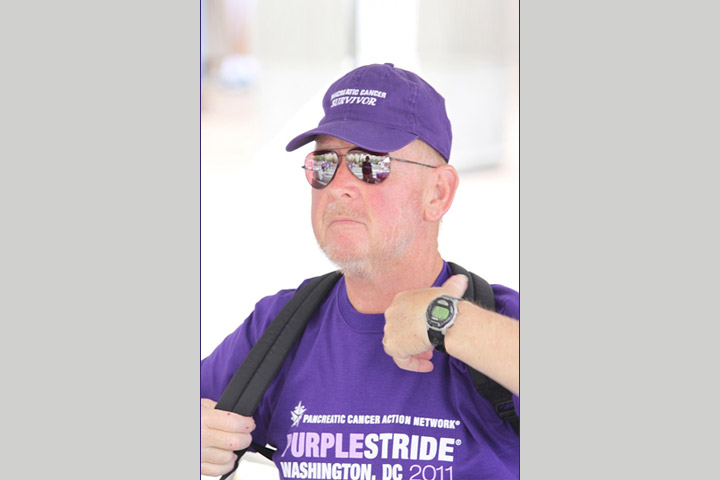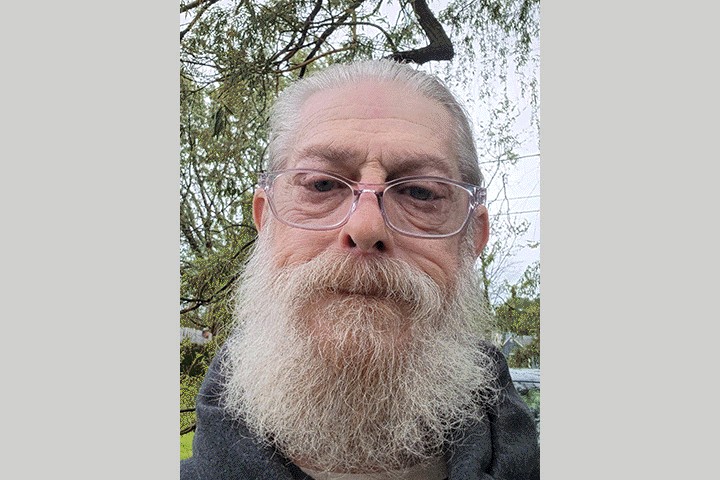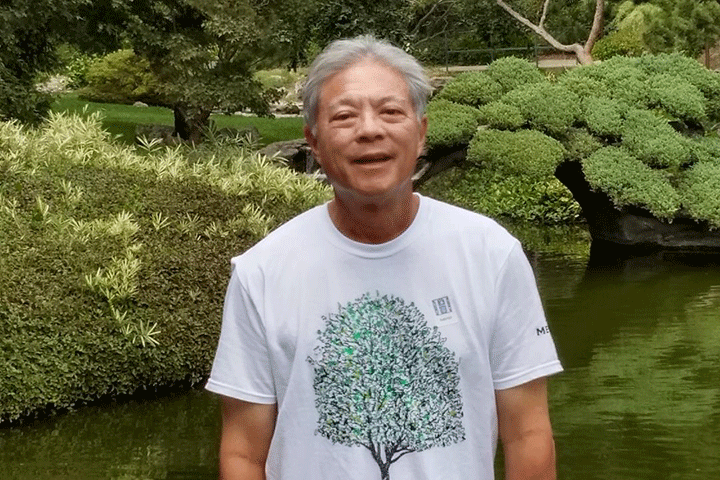I Have Pancreatic Cancer; It Does Not Have Me

- A Whipple procedure, then a clinical trial
- Cancer spread discovered before the trial starts
- A new plan—treatment with FOLFIRINOX
- Molecular profiling of the tumor shows which drugs work best
One day in November 2010 I noticed that my urine was dark brown.
After this continued for a few days I went to my primary care doctor, who ordered a blood test and urinalysis. The next day I had a CT scan, which showed a tumor on my pancreas. My CA 19-9 was only 39, which is barely out of the normal range. I was officially diagnosed with pancreatic cancer on November 19, 2010 at the University of Maryland Medical Center.
A Whipple procedure was completed on November 24, 2010 by Dr. H. Richard Alexander (now at Rutgers Cancer Institute of New Jersey, New Brunswick) at UMMC in Baltimore, Maryland. At that time my cancer was staged as IIb. I recovered well from the surgery and signed up for a clinical trial combining gemcitabine and radiation.
A Scan Before the Trial Changes the Plan
On January 4, 2011, I had a CT scan to prepare for the clinical trial. The CT scan showed spots on my liver, making my cancer stage IV. I was no longer eligible for the clinical trial.
My oncologist, Dr. Naomi Horiba, at the University of Maryland School of Medicine, started me on FOLFIRINOX, a relatively new drug combination for pancreatic cancer. I had 11 rounds of FOLFIRINOX over a six-month period. After five treatments, all but one of the spots were gone from my liver. After six months all the spots were gone.
During treatment I had molecular profiling done on my tumor by Caris Life Sciences. It showed that I received clinical benefit from fluorouracil and oxaliplatin but the irinotecan provided no clinical benefit.
Support During Treatment; Life After Treatment
I have been free of cancer for over five years.
Getting a diagnosis of metastatic pancreatic cancer can certainly change your life. Four things have gotten me through this battle. They are faith in God; support from my wife Jean, our family and friends; a sense of humor; and a positive attitude. My grandson Sean recently ran in a 5K event and raised over $600. The T-shirt that he wore during the event read “My Grandpa’s Battle is My Battle, Supporting Him Until He Wins.”
Since I won my fight against pancreatic cancer, we set up a nonprofit, the Mid-Shore Pancreatic Cancer Foundation, Inc., to fight pancreatic cancer. Our mission is to provide hope and support for people fighting pancreatic cancer in our community. We are working toward a day when pancreatic cancer will move from being a deadly disease to being a chronic disease.
Finally, I can’t emphasize enough the importance of a positive attitude. I have a friend who has MS. She says she has MS, but MS doesn’t have her. I feel the same way. I have pancreatic cancer, but it doesn’t have me.
Watch Bill’s video “Hope and Support” to learn more about him.






